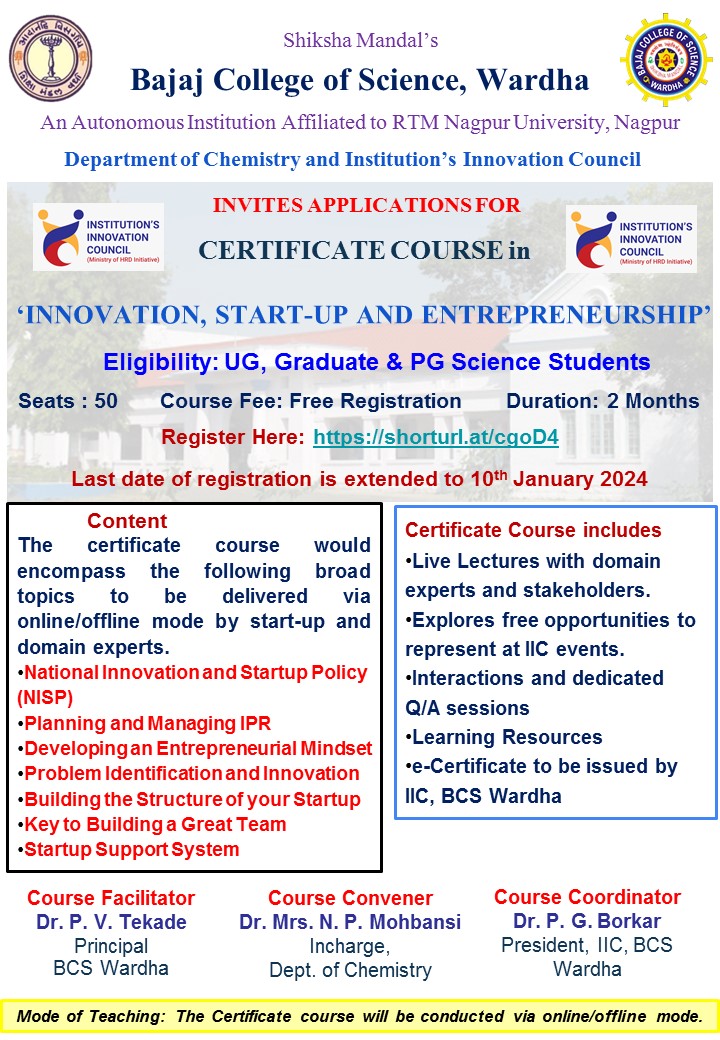
The aim of this course is to provide a detailed coverage of fundamental concepts and important issues associated with innovation, start-up and entrepreneurship. It highlights National Innovation and Startup Policy (NISP), Planning and Managing IPR, Developing an Entrepreneurial Mindset, Problem Identification and Innovation, the essential skill for successful entrepreneur should possess as well as the essential elements of an entrepreneurial ecosystem. The subject focuses on the discussion of important procedures to convert innovative ideas into result-oriented actions and emphasises use of critical and innovative thinking to add value. It also discusses important aspects of scaling up process and application of risk management strategies to avoid failure. The subject also elucidates the role of leadership in developing a successful start-up with due coverage of innovative business forms in established and emerging markets.
Course Objectives: -
1. To impart knowledge about National Innovation and Startup Policy (NISP).
2. To rationalise the idea of innovation and IPR.
3. To demonstrate the various key parameters to set an early stage start-up.
4. To impart the knowledge of Entrepreneurship.
Course Learning Outcomes: -
On completion of this certificate course, students will be able to-
- Visualise the importance of National Innovation and Startup Policy (NISP).
- Rationalise the idea of innovation and IPR.
- Demonstrate the various key parameters to set an early stage start-up.
- Know about the knowledge of Entrepreneurship.
- Teacher: Dr. Prashant Borkar

